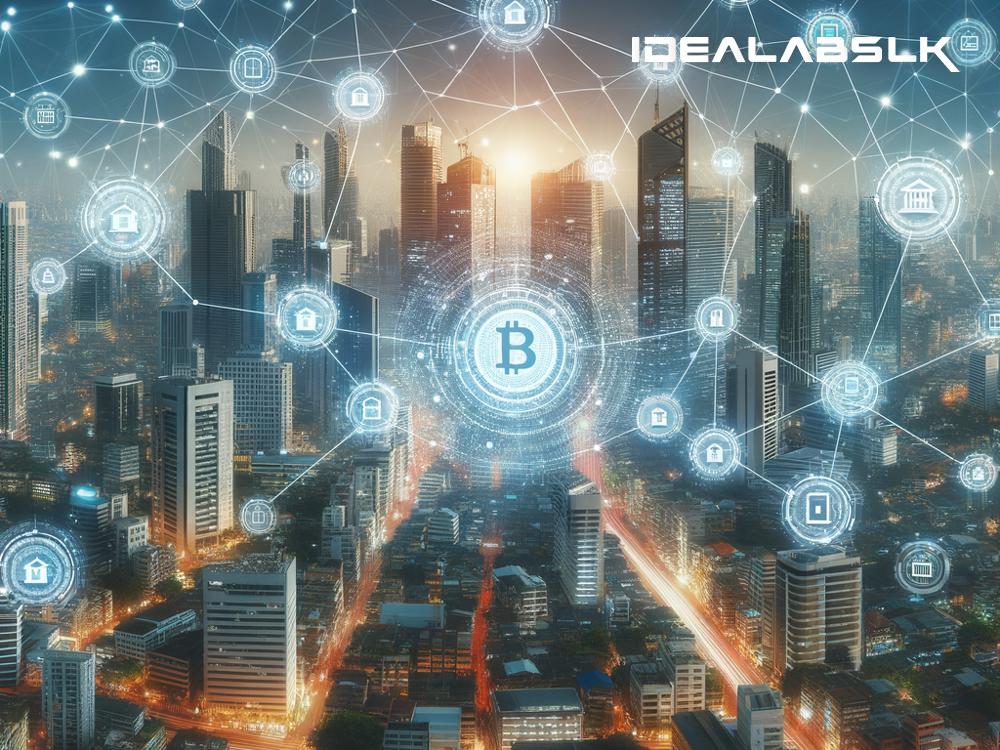Blockchain for Real Estate: Tokenizing Properties for Fractional Ownership
Real estate has long been a popular way to invest money and see it grow over time. However, it's often seen as a privilege reserved for those with lots of capital. You're probably familiar with the idea of buying an entire house or building as an investment. But what if you could own just a piece of a property, much like you would a share in a company? Welcome to the future of real estate, enabled by blockchain technology – where tokenizing properties for fractional ownership is becoming a reality.
Understanding Blockchain and Tokenization
Before diving into the nitty-gritty, let's break down some of the terms. Blockchain is a digital ledger that securely records transactions across many computers. You might recognize it as the technology behind cryptocurrencies like Bitcoin. Imagine it as a super secure and transparent digital notepad that anyone can check, but no single person controls.
Tokenization is when you take something valuable from the real world, like a piece of real estate, and turn it into a digital token that represents ownership or a share of that asset. It’s like converting a physical asset into virtual Lego pieces, where each piece represents a portion of the real thing's value.
Combine these two, and you have a powerful, accessible, and efficient way to invest in real estate.
Tokenizing Properties for Fractional Ownership
The traditional real estate investment scenario often involves a lot of money, experience, and connections. It's where the big players get to make the big moves. But through tokenization, real estate can be divided into smaller, more affordable shares. This means that investing in a property no longer requires buying the entire building or land. Instead, you can own a tiny fraction of a property, just like owning a piece of a company by buying its stock.
This approach democratizes real estate investments, making them accessible to many more people. You don't need tens of thousands of dollars to get started; with fractional ownership, you could theoretically become a real estate investor with much less.
The Benefits of Blockchain in Real Estate
1. Accessibility: As mentioned, fractional ownership opens the door for more people to invest in real estate. It's an exciting prospect for those previously priced out of the market.
2. Transparency: Blockchain’s transparent nature means every transaction is recorded and visible, reducing fraud and discrepancies in ownership and making the investment process clearer and fairer for everyone involved.
3. Liquidity: Traditionally, selling a piece of real estate can be a lengthy process – it's not exactly easy to convert a building into cash quickly. However, with tokenized assets, owners could potentially sell their shares much faster on a secondary market, similarly to stocks.
4. Efficiency and Security: Blockchain reduces the need for middlemen, which can lower transaction costs and times. Also, its secure nature adds an additional layer of protection for investors’ assets.
Real-World Applications and Challenges
There are already several startups and projects exploring tokenization in real estate. From luxury apartments in major cities to income-generating commercial properties, the idea is catching on. However, it's not without its challenges.
Regulatory Hurdles: Real estate is heavily regulated, and introducing a new model of ownership inevitably faces legal scrutiny. Countries and regions have different regulations, which can complicate the widespread adoption of tokenized real estate.
Market Adoption: Despite the clear benefits, the concept is still new. Getting buyers, sellers, and real estate professionals to understand and trust this new way of doing things takes time.
Technical Barriers: While blockchain technology has advanced, there are still concerns regarding scalability, energy consumption, and the digital divide that could hinder access for some potential investors.
The Future of Real Estate Investment
The tokenization of real estate assets represents a shift towards more democratic, accessible, and efficient investment processes. While challenges exist, the potential for positive disruption in one of the world’s oldest investment markets is immense. As the technology matures and regulatory frameworks adapt, we could see a future where anyone can easily and securely invest in real estate around the globe, all thanks to blockchain.
In essence, blockchain and tokenization are not just transforming the way we see money and transactions; they're set to revolutionize what it means to own a piece of the world - quite literally. As we move forward, the dream of inclusive investment opportunities continues to unfold, paving the way for a new era in real estate. Welcome to the future – it's more accessible and connected than ever before.

